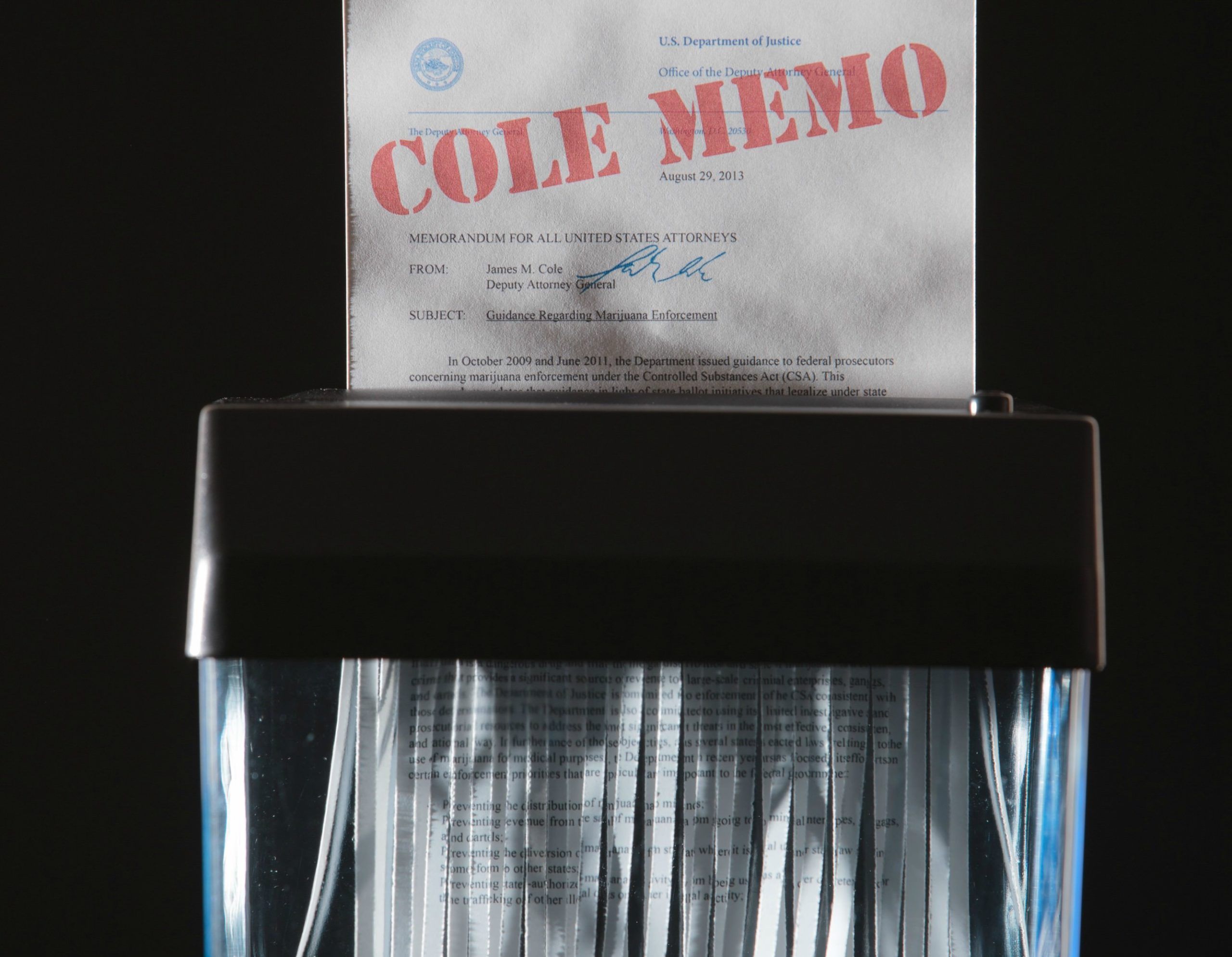A cannabis company plans to offer low-dose CBD products at convenience stores, U.S. Attorney General Jeff Sessions says federal attorneys have bigger concerns than “routine” marijuana cases, and an Arkansas judge blocks regulators from issuing MMJ business licenses.
Here’s a closer look at some notable developments in the marijuana industry over the past week.
Fill ‘er up
It sounds like a punch line, but there’s about to be even more cannabis at the corner gas station than there already is.
But that’s the potential offshoot of a California company’s announcement that it’s rolling out a line of low-dose CBD products designed for impulse shoppers at convenience stores.
The products will be sold in one-, two- and 30-day supplies.
They aren’t the first cannabis-derived hemp products to show up in gas stations, and they won’t be the last, said Jeff Lenard, spokesman for the Virginia-based National Association of Convenience Stores.
“Hemp has carried some cachet in the last couple years, especially to younger consumers,” he said.
“To younger consumers, this is new, this is hip, this is legal.”
Convenience stores are boosting offerings in health and wellness products, Lenard said, and it makes sense why.
Their margins on gasoline sales are as low as 5 cents a gallon.
“But when you sell a high-end bottle of a neutraceutical, the margins are much higher,” Lenard added.
For CBD producers, convenience stores represent an enormous new market.
Roughly 155,000 convenience stores operated in the United States in 2017 and only about 43,000 drugstores, according to the industry’s trade association.
Sessions’ proclamation
It’s obviously not news that U.S. Attorney General Jeff Sessions is anti-marijuana.
But what did make headlines was his statement that federal prosecutors won’t be prioritizing so-called “small marijuana cases.”
What that amounts to is basically the status quo for the U.S. marijuana industry.
That’s Betty Aldworth’s read on the situation.
As the longtime executive director of Students for Sensible Drug Policy, she keeps close tabs on the political goings-on in Washington, DC.
“(Sessions) restated that they’re going to continue to prosecute cases as they have,” Aldworth said.
“That being said, no one who’s working in the cannabis industry should fool themselves into thinking that Jeff Sessions doesn’t consider them to be in a large-scale conspiracy.”
Aldworth said the political reality for Sessions is that he’s a member of a shrinking minority that still believes in the war on drugs.
“One of the most telling statements Jeff Sessions has made about cannabis in the past 14 months or so has been his surprise that he felt alone in his opposition to cannabis policy reform,” Aldworth said.
That seems to indicate there’s a low probability the Department of Justice will try to prosecute any state-legal cannabis companies – if, for no other reason, that there’s not much political support for such a move.
“The prosecution of a state-legal business would be terrifically complicated and would probably embroil the DOJ in lawsuits that would take up an enormous amount of time,” Aldworth said.
“Which doesn’t mean they’re not eventually going to try to do it, but it’s a deterrent factor, I think, for prosecution.”
Trouble in Arkansas
An Arkansas judge’s move to block the state from licensing medical marijuana growers could set the program back months.
A hearing is scheduled for Friday on a request for a preliminary injunction against the state.
At issue is whether the scoring process was fair in ranking the top five cultivation applicants, who ended up receiving licenses.
As is common in other states that launch cannabis programs, an applicant who didn’t receive a license – in this case, Naturalis Health – sued the state, saying the process was arbitrary and capricious.
Arkansas attorney David Couch said the court action is bad in the short term because it will likely slow implementation of the MMJ program.
But in the long term, he added, it’s good for the industry.
“We want everybody to have confidence in the system that we set up,” said Couch, a leading MJ legalization advocate in Arkansas.
“And we want it to be fair and transparent. Even if it causes a 3-4-month delay, the confidence it instills in this industry will be worth it.”
If the judge grants the injunction, regulators could decide to have the cultivation applications re-evaluated and scored by an outside group, which could hold up the program.
“Of course, the five (winning applicants) aren’t going to like that,” Couch said, “so it’s probably going to encourage some more litigation.”
But he doesn’t believe the legal wranglings will sink the market.
“Eventually, we’re going to get there,” Couch said. “We just want (the program) to roll out in the right way.”
Kristen Nichols can be reached at kristenn@mjbizdaily.com
John Schroyer can be reached at johns@mjbizdaily.com
Bart Schaneman can be reached at barts@mjbizdaily.com




